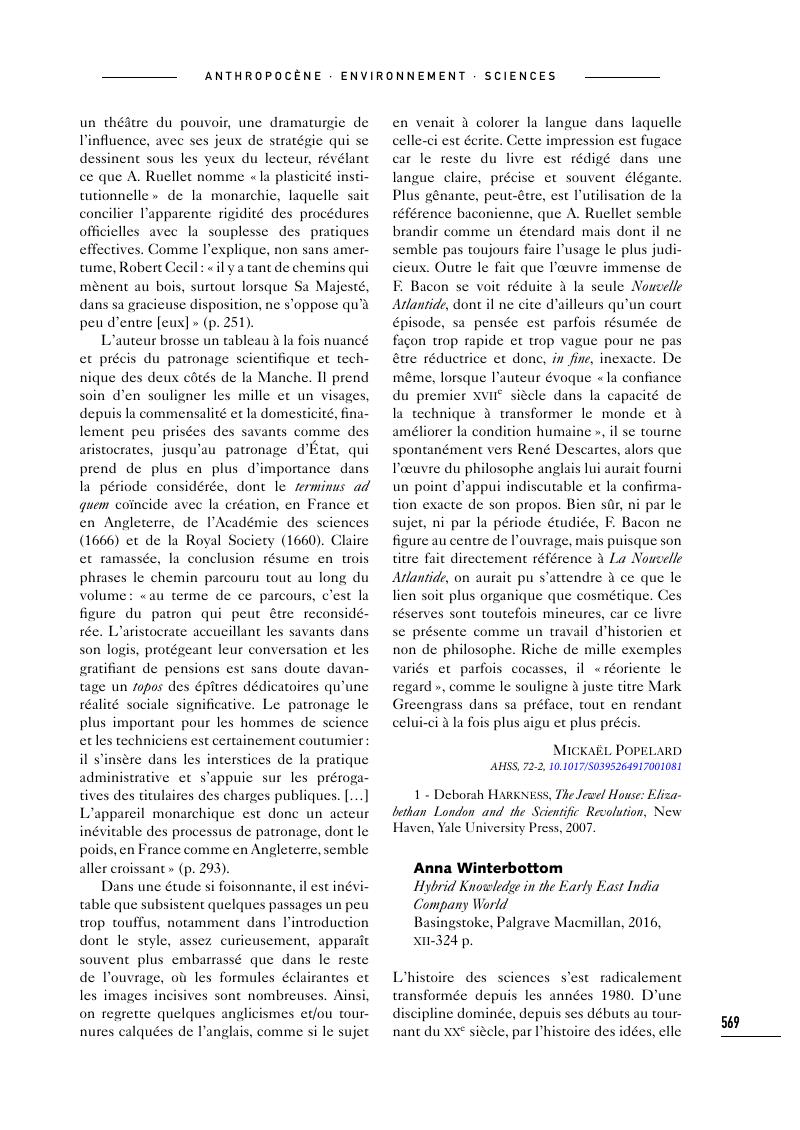No CrossRef data available.
Published online by Cambridge University Press: 20 February 2018

1 Dominique Pestre, « Pour une histoire sociale et culturelle des sciences. Nouvelles définitions, nouveaux objets, nouvelles pratiques », Annales HSS, 50-3, 1995, p. 487-522.
2 Deepak Kumar, Science and Empire: Essays in Indian Context, 1700-1947, Delhi, Anamika Prakashan, 1991 ; Ines G. Županov, Disputed Mission: Jesuit Experiments and Brahmanical Knowledge in Seventeenth-Century India, New Delhi, Oxford University Press, 1999 ; Pamela H. Smith et Paula Findlen (dir.), Merchants and Marvels: Commerce, Science, and Art in Early Modern Europe, New York, Routledge, 2002 ; Kapil Raj, Relocating Modern Science: Circulation and the Construction of Knowledge in South Asia and Europe, 1650-1900, Basingstoke, Palgrave Macmillan, 2007 ; Harold J. Cook, Matters of Exchange: Commerce, Medicine, and Science in the Dutch Golden Age, New Haven, Yale University Press, 2007 ; Simon Schaffer et al., The Brokered World: Go-Betweens and Global Intelligence, 1770-1820, Sagamore Beach, Science History Publications, 2009 ; Dániel Margócsy, Commercial Visions: Science, Trade, and Visual Culture in the Dutch Golden Age, Chicago, The University of Chicago Press, 2014.
3 John Marshall, John Marshall in India: Notes and Observations in Bengal, 1668-1672, éd. par S. Ahmad Khan, Londres, Oxford University Press, 1927.